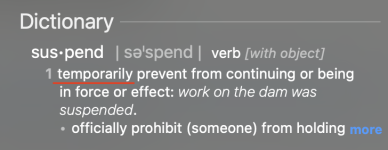Key Findings
- Super PACs backed by the cryptocurrency sector have raised more than $102 million, the third-most of all super PACs engaged in the 2024 election, according data from Opensecrets.org. Only the super PAC backing Ron DeSantis’ failed presidential campaign and the super PAC backing Democratic Senate candidates have raised more money so far.
- More than half of the crypto super PACs’ political war chests – about $54 million – comes from direct corporate expenditures, primarily Coinbase and Ripple Labs, showing the sector is taking full advantage of Citizens United-enabled unlimited corporate political spending.
- Four of the eight corporate crypto super PAC donors have settled or are facing charges by the U.S. Securities and Exchange Commission (SEC) for alleged violations of securities laws. Ripple Labs alone is reportedly facing nearly $2 billion in penalties. Beating back regulations is among the super PAC backers’ stated goals.
- The rest of the crypto super PACs’ political war chest comes from billionaire crypto executives and venture capitalists, including $11 million each from the founders of venture capital firm Andreessen Horowitz, $5 million from the Winklevoss twins, and $1 million from Coinbase CEO Brian Armstrong.
- Out of the six 2024 primary races where the crypto super PACs intervened and which are now over, only one crypto-backed candidate has lost. Eleven primary races that include crypto-backed candidates remain.
- The crypto super PACs have pledged to spend in general election Senate races in the battleground states of Ohio and Montana, which are seen as essential for securing a Senate majority. Democratic incumbents in both races have been critical of the crypto sector.
...
Crypto Targets
The narrow Democratic majority in the Senate and Republican majority in the House mean the crypto sector’s outsized influence in a small number of races has the potential to tip control of Congress toward one party or the other.
Fairshake spokesman Josh Vlasto, a former chief of staff for New York Gov. Andrew Cuomo and a top aide to Sen. Chuck Schumer (D-N.Y.), understands this. “We’ll have the resources to affect races and the makeup of institutions at every level,” Vlasto said. “And we’ll leverage those assets strategically to maximize their impact in order to build a sustainable, bipartisan crypto and blockchain coalition.”
Two statewide Senate races Fairshake PAC intends to target in the general election – Ohio and Montana – are particularly high stakes, as incumbent Democrats in both are defending seats in states that Trump won in 2020. Winning both is seen as essential to Democrats retaining their Senate majority.
So far, Fairshake’s greatest expenditure was $10 million against Rep. Katie Porter in the California primary race between candidates seeking the Senate seat filled for decades by Sen. Dianne Feinstein, who died in office in 2023.
Following Rep. Porter’s loss, the congresswoman criticized the “onslaught of billionaires spending millions to rig this election” and later clarified she was referring specifically to “A few billionaires” who “spent $10 million+ on attack ads against me.”
Fairshake’s Vlasto’s response: “Thank you, Katie Porter, for giving Fairshake credit for your loss.”
While cryptocurrency policy is Fairshake’s the central issue, the advertisements that the super PAC ran against Porter (which can still be viewed on YouTube) do not mention cryptocurrencies, regulation, or technology policy. The group’s backers may be “one issue voters,” as billionaire venture capitalist Ben Horowitz said, but their strategy shows Fairshake is uninterested in being forthright about its political priorities with the voters it seeks to influence. The campaign instead deployed a strategy of carefully worded attacks seeking to paint their target as an untrustworthy politician.
In Alabama, Fairshake affiliate Protect Progress intervened in the Democratic primary for the state’s 2nd district. According to OpenSecrets data, Protect Progress spent $2.4 million backing Shomari Figures, who pledged on his campaign website to “embrace the new landscape around digital assets, like cryptocurrency, to stimulate innovation and technological advancement.” The super PAC also spent nearly $240,000 against Figures’ primary opponent, Anthony Daniels. Figures prevailed in the primary.
In Texas, Protect Progress spent nearly $962,000 backing Julie Johnson in the Democratic primary for the state’s 32nd district. A section marked “Innovation” on the issues page of Johnson’s campaign website reads in part, “Americans can benefit from crypto innovation. We must establish clear rules of the road for the crypto industry to build technology that benefits everyday Americans, while protecting consumers and ensuring equitable outcomes for all.” Johnson won her primary as well.
Out of the six 2024 primary races where the crypto super PACs intervened and which are now over, only one crypto-supported candidate has lost so far, John R. Bradford III (R-N.C.).
...














